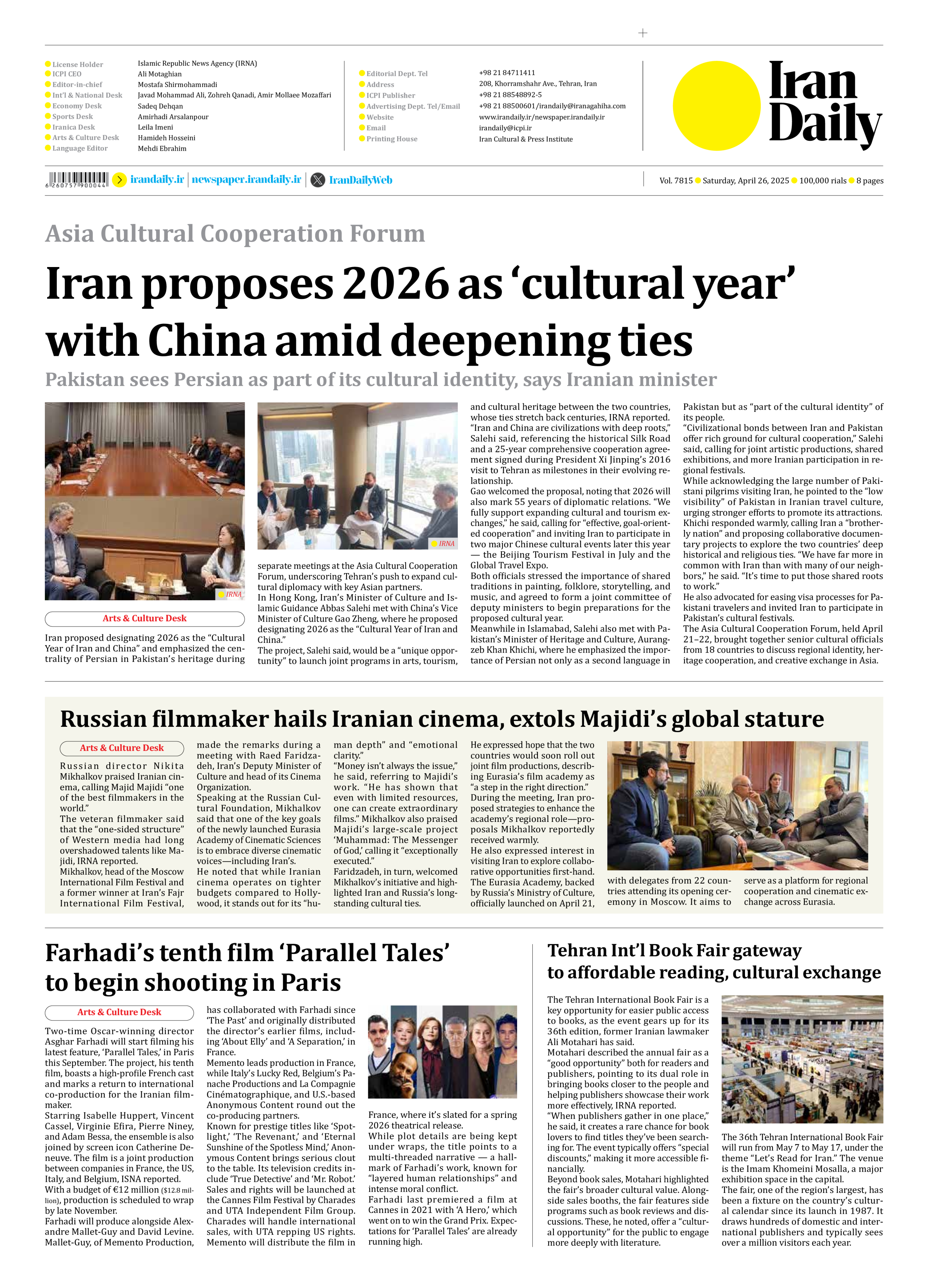
Asia Cultural Cooperation Forum
Iran proposes 2026 as ‘cultural year’ with China amid deepening ties
Pakistan sees Persian as part of its cultural identity, says Iranian minister
Iran proposed designating 2026 as the “Cultural Year of Iran and China” and emphasized the centrality of Persian in Pakistan’s heritage during separate meetings at the Asia Cultural Cooperation Forum, underscoring Tehran’s push to expand cultural diplomacy with key Asian partners.
In Hong Kong, Iran’s Minister of Culture and Islamic Guidance Abbas Salehi met with China’s Vice Minister of Culture Gao Zheng, where he proposed designating 2026 as the “Cultural Year of Iran and China.”
The project, Salehi said, would be a “unique opportunity” to launch joint programs in arts, tourism, and cultural heritage between the two countries, whose ties stretch back centuries, IRNA reported.
“Iran and China are civilizations with deep roots,” Salehi said, referencing the historical Silk Road and a 25-year comprehensive cooperation agreement signed during President Xi Jinping’s 2016 visit to Tehran as milestones in their evolving relationship.
Gao welcomed the proposal, noting that 2026 will also mark 55 years of diplomatic relations. “We fully support expanding cultural and tourism exchanges,” he said, calling for “effective, goal-oriented cooperation” and inviting Iran to participate in two major Chinese cultural events later this year — the Beijing Tourism Festival in July and the Global Travel Expo.
Both officials stressed the importance of shared traditions in painting, folklore, storytelling, and music, and agreed to form a joint committee of deputy ministers to begin preparations for the proposed cultural year.
Meanwhile in Islamabad, Salehi also met with Pakistan’s Minister of Heritage and Culture, Aurangzeb Khan Khichi, where he emphasized the importance of Persian not only as a second language in Pakistan but as “part of the cultural identity” of its people.
“Civilizational bonds between Iran and Pakistan offer rich ground for cultural cooperation,” Salehi said, calling for joint artistic productions, shared exhibitions, and more Iranian participation in regional festivals.
While acknowledging the large number of Pakistani pilgrims visiting Iran, he pointed to the “low visibility” of Pakistan in Iranian travel culture, urging stronger efforts to promote its attractions.
Khichi responded warmly, calling Iran a “brotherly nation” and proposing collaborative documentary projects to explore the two countries’ deep historical and religious ties. “We have far more in common with Iran than with many of our neighbors,” he said. “It’s time to put those shared roots to work.”
He also advocated for easing visa processes for Pakistani travelers and invited Iran to participate in Pakistan’s cultural festivals.
The Asia Cultural Cooperation Forum, held April 21–22, brought together senior cultural officials from 18 countries to discuss regional identity, heritage cooperation, and creative exchange in Asia.







